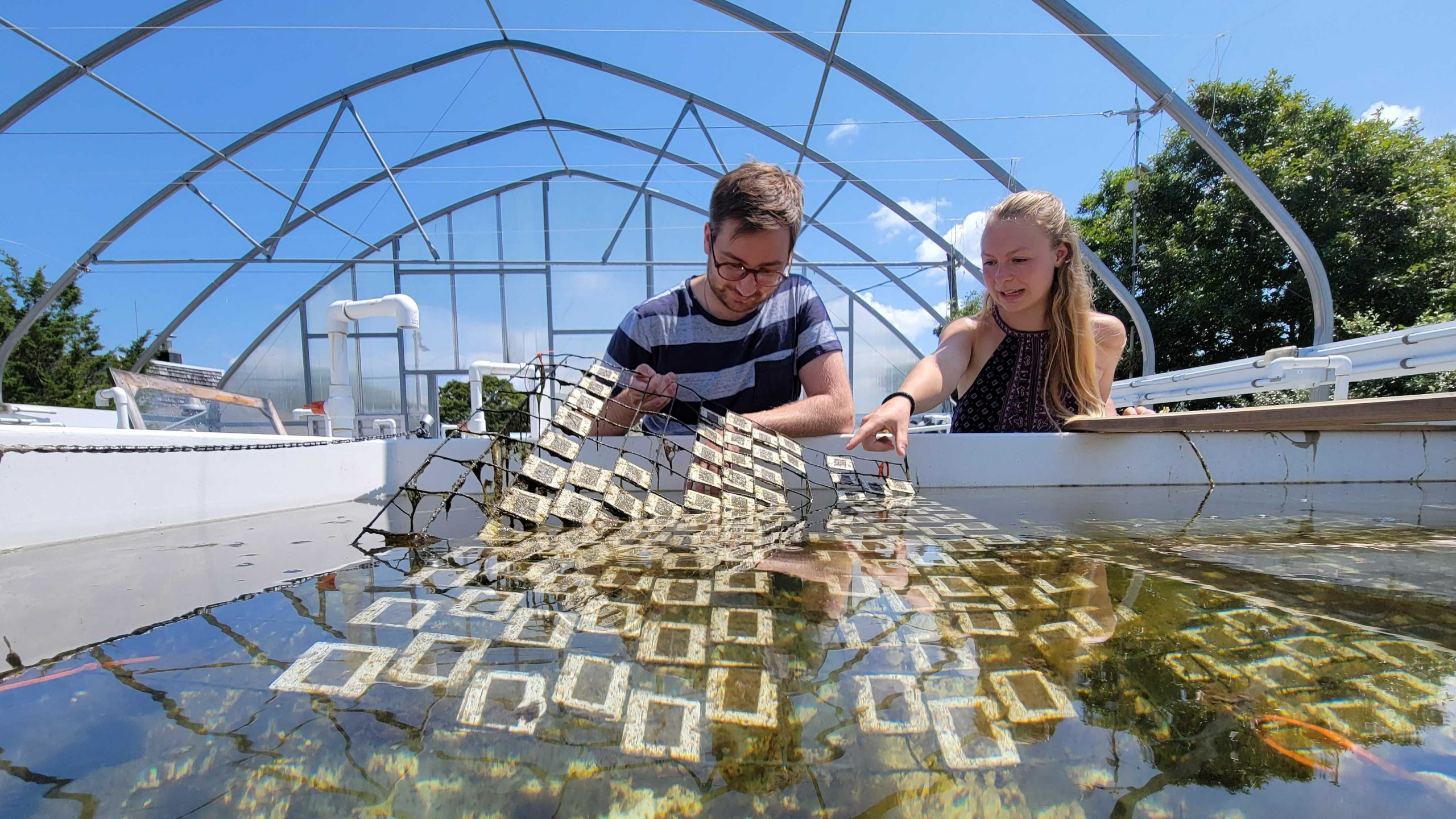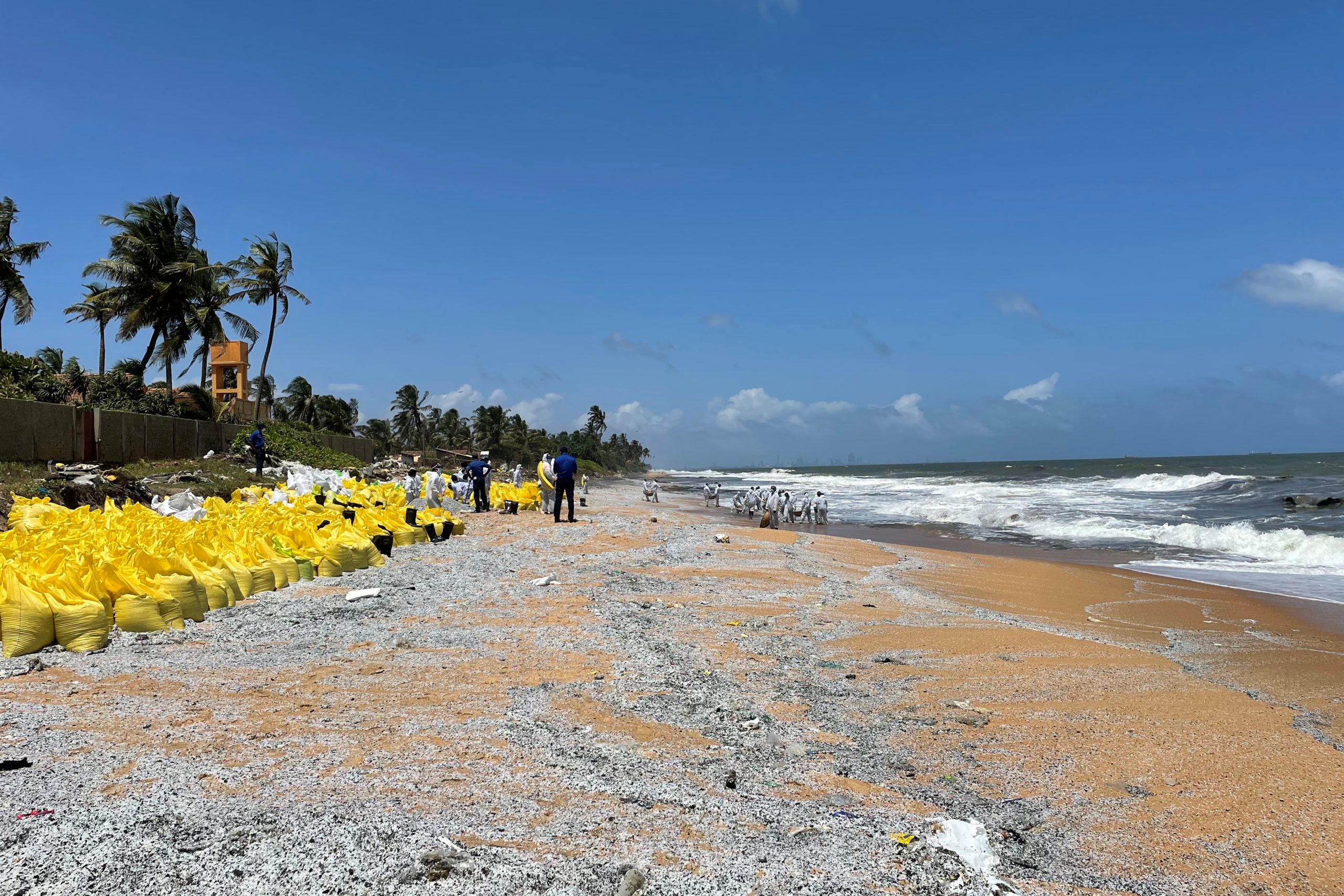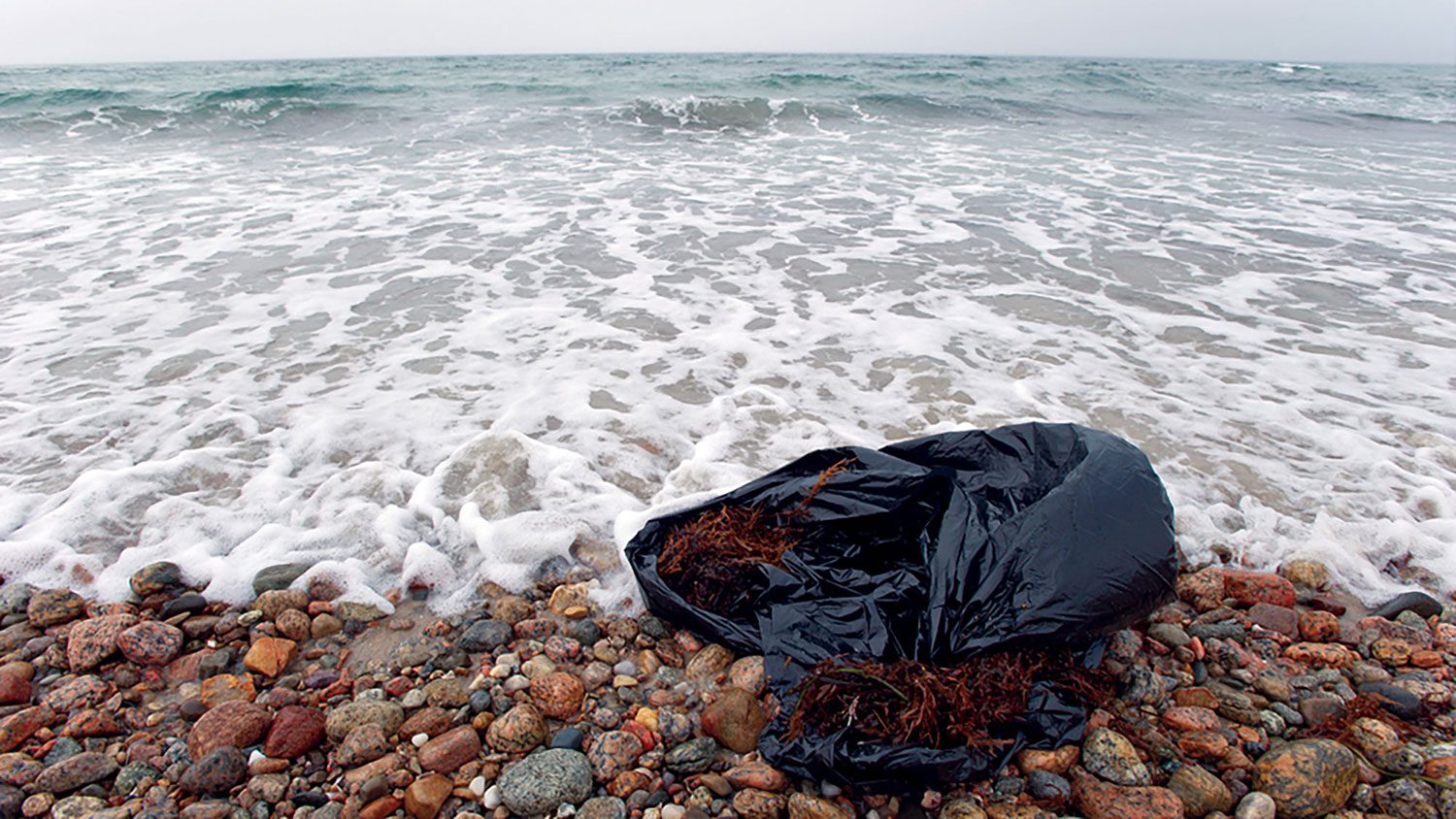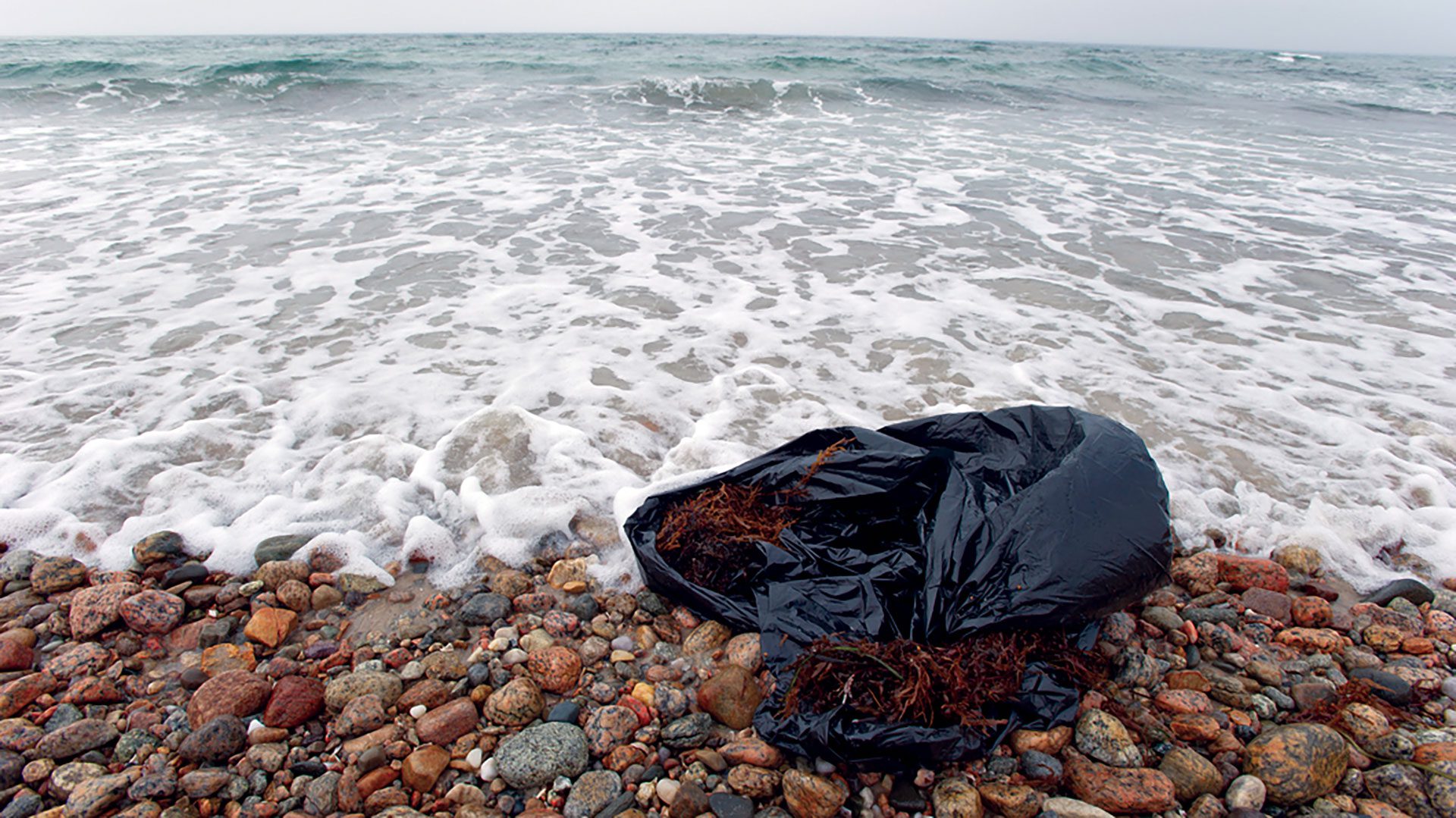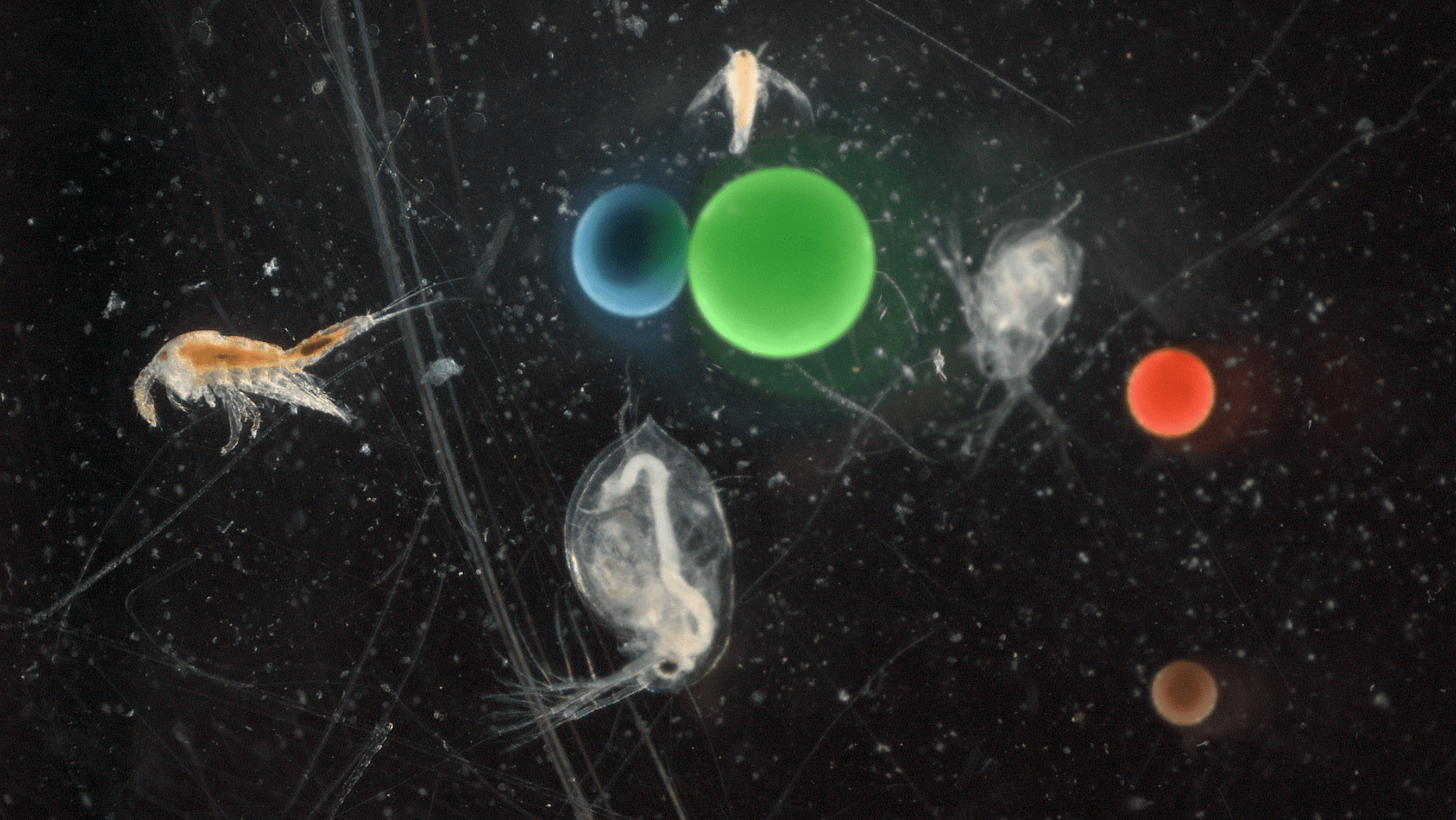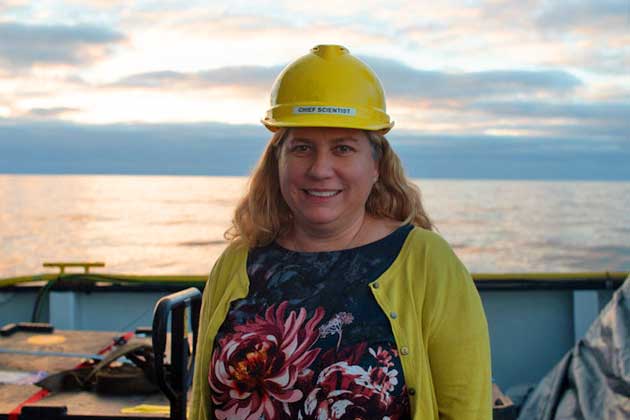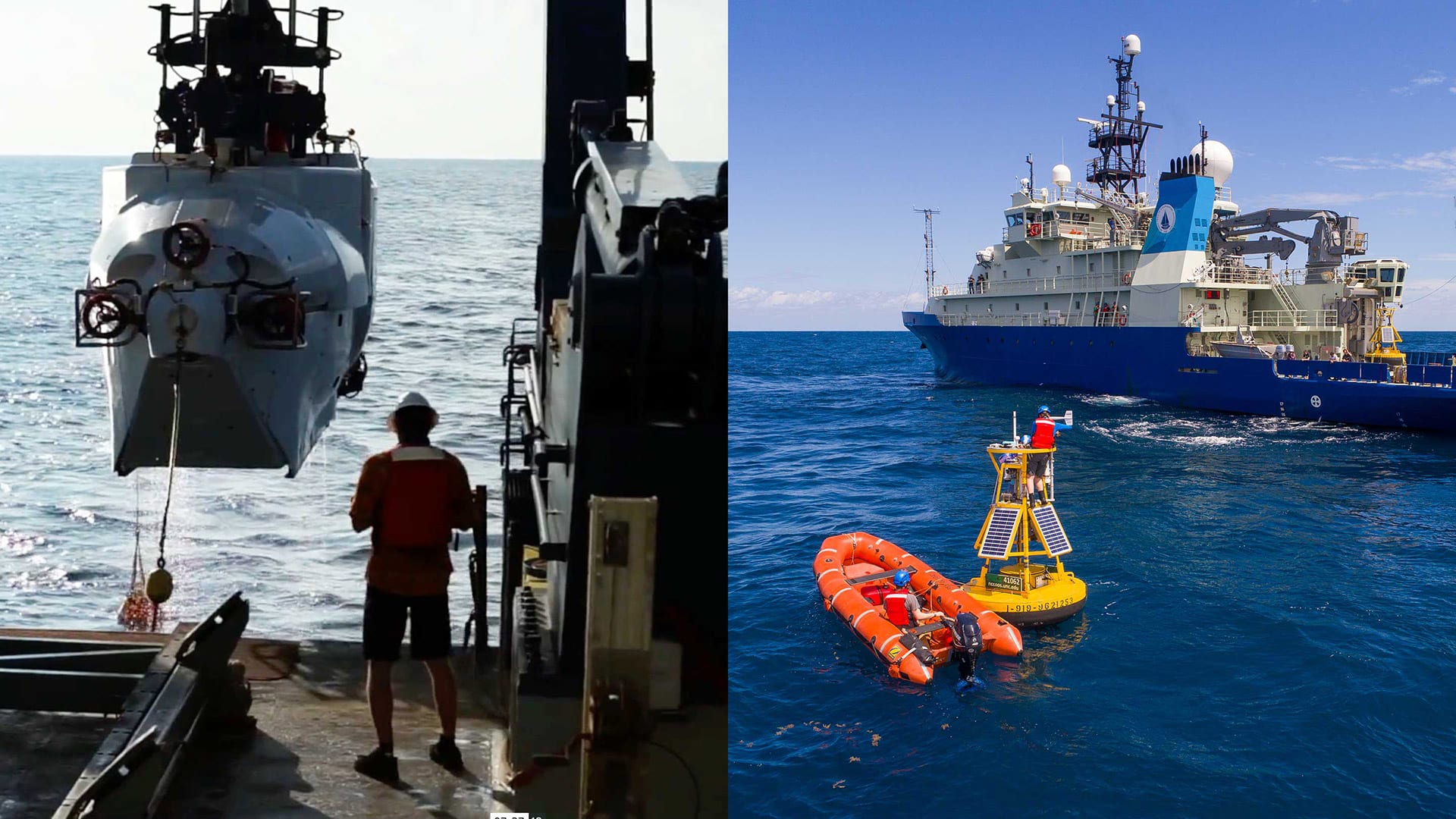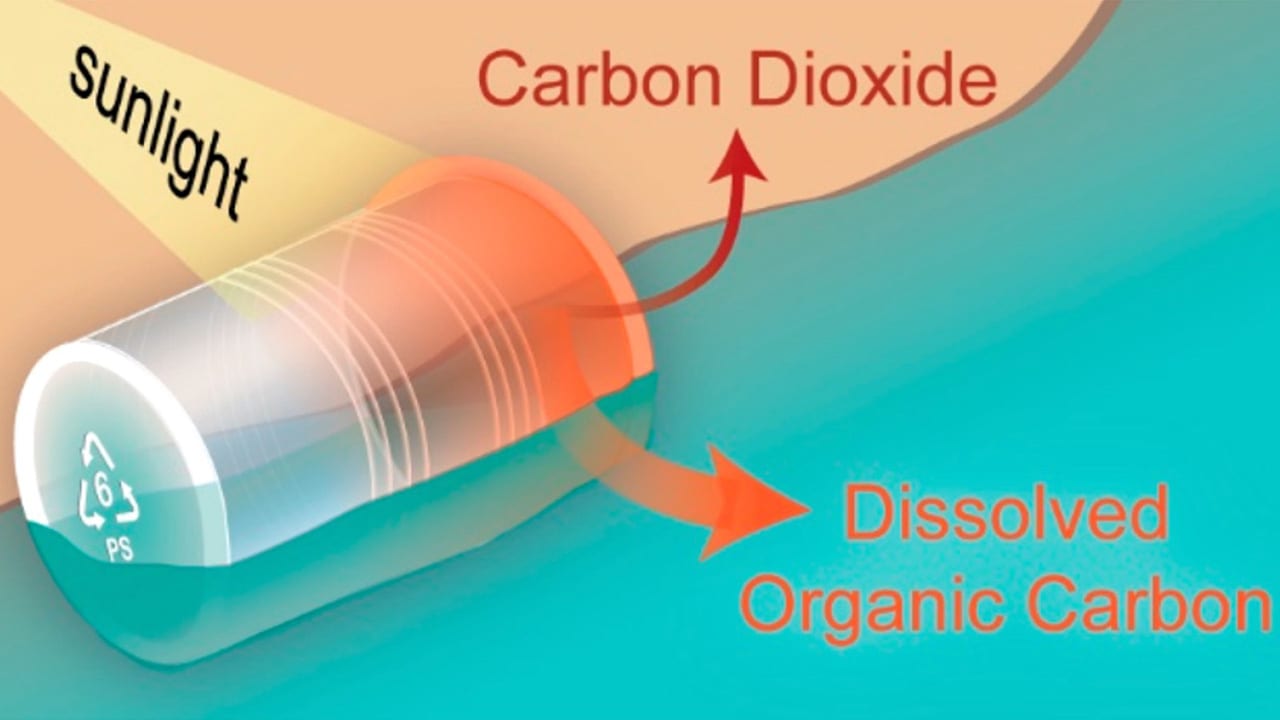News Releases
Sunlight can break down marine plastic into tens of thousands of chemical compounds, study finds
Sunlight was once thought to only fragment plastics in the marine environment into smaller particles that chemically resemble the original material and persist forever. However, scientists more recently have learned that sunlight also chemically transforms plastic into a suite of polymer-, dissolved-, and gas-phased products. Now, a new study finds that this chemical reaction can produce tens of thousands of water-soluble compounds, or formulas.
Read MoreA new way of looking at plastics
WHOI researchers develop a new sustainability metric for plastic products
Read MoreStudy outlines challenges to ongoing clean-up of burnt and unburnt nurdles along Sri Lanka’s coastline
When a fire broke out on the deck of the M/V XPress Pearl cargo ship on May 20, 2021, an estimated 70-75 billion pellets of preproduction plastic material, known as nurdles, spilled into the ocean and along the Sri Lankan coastline. That spill of about 1,500 tons of nurdles, many of which were burnt by the fire, has threatened marine life and poses a complex clean-up challenge. A new peer-reviewed study characterizes how the fire modified the physical and chemical properties of the nurdles and proposes that these properties affected their distribution along the coast.
Read MoreNew report highlights plastic pollution as a grave and growing danger to health and announces an independent, health-focused global monitoring system
While the impacts of plastic pollution on human health and the environment are growing, the report finds, increasing harm due to plastics is not inevitable.
Read MoreWHOI helps lead groundbreaking study on the human and ocean health impacts of ocean plastics
For the first time, leading researchers from the fields of healthcare, ocean science, and social science have collaborated to quantify plastic’s considerable risks to all life on Earth. The Minderoo-Monaco Commission on Plastics and Human Health report, released today, presents a comprehensive analysis showing plastics as a hazard at every stage of their life cycle.
Read MoreWHOI shares details on microplastic detection project
A project led by Woods Hole Oceanographic Institution’s Chemical Sensors Lab is moving researchers closer to an in-field microplastics sensor that measures the amount of plastic particles in water.
Read MoreWoods Hole Oceanographic Institution appoints new Chief Scientist for National Deep Submergence Facility
Anna Michel aboard the R/V Falkor for the Hunting Bubbles Cruise to the Cascadia Margin in 2018. The ROV Sebastian was used to investigate the transfer of methane from the…
Read MoreWHOI Scientists Make Woods Hole Film Festival Appearance
Woods Hole Oceanographic Institution (WHOI) scientists appear in two shorts and a feature film at this year’s Woods Hole Film Festival (WHFF). In addition, scientists will also participate in Q&A…
Read MoreSunlight degrades polystyrene faster than expected
The general consensus of governmental agencies is that it takes polystyrene thousands of years to fully break down. But a new study shows that it may instead degrade in decades or centuries when exposed to sunlight.
Read More
